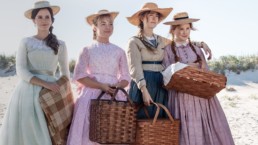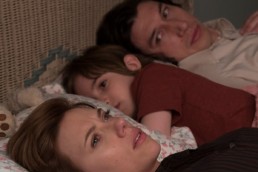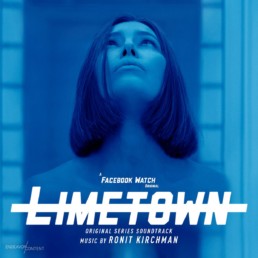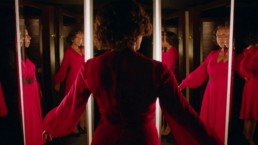'Little Women' Review: A Modern and Empowering Remake
I am generally not a fan of remakes/reboots; I believe the reliance on doing what has already been done distracts from the discovery of new and inspiring voices in cinema.
Greta Gerwig, however, has changed my mind. Did society need another rendition of Little Women, the Louisa May Alcott novel that was first published in 1868 and has been remade over 14 times? Will this be the quintessential female empowerment film of the year released at a perfect time? Are we all the better for it? A resounding yes! To all of the above.
This interpretation of the life and times of the March sisters stays faithful to the novel while embracing Gerwig's charm and quick-witted charisma. A story of love, loss, and coming of age, these four sisters – Jo (Saoirse Ronan), Meg (Emma Watson), Amy (Florence Pugh), and Beth (Eliza Scanlen) – rely on each other to navigate life's unpredictability and hardships. All independent thinkers with unique personalities, the women are headstrong in their quest to find personal fulfillment, which means different things to each of them. Jo, the outspoken feminist of the group, is committed to her work as an aspiring writer. Despite her admiration for her wealthy neighbor, the charming and confident Theodore 'Laurie' Laurence (Timothée Chalamet), she turns down his marriage proposal in favor of a life she can call her own. Her views on love and marriage stand opposite to Meg and Amy's, who find love in very unexpected partners. The youngest and more reserved sister, Beth, finds happiness through music but, as we learned 150 years ago when the novel was released, even her passion and purity can't protect her from contracting an incurable illness.
Despite being set in a post-Civil War era, the script, which was adapted for the screen by Gerwig, feels fresh with sharp, sassy humor. The dynamic between Jo and Laurie feels like any modern-day teenage couple trying to figure out their relationship through the ups and downs of tears and laughter. In addition to modernizing the characters, Gerwig takes some creative liberty in her storytelling by jumping through the timeline, with the only distinction between past and present being the more saturated color palette of the past as opposed to the more bleak and gray reality of the present. It's a stylized decision that works wonders.
Aside from being a directorial knockout, the assembly of this all-star cast is an exciting who's who of legendary and iconic artists. Laura Dern provides an emotionally moving performance as Marmee, and Meryl Streep is unmatched in her cattiness as Aunt March. Saoirse Ronan is fierce as the protagonist, Jo, but perhaps the film's biggest surprise is Florence Pugh, whose hypnotic voice and measured understanding of comedic timing both enhances the ensemble cast while simultaneously stealing every scene.
The vibrancy that radiates from Little Women feels reminiscent of Gerwig's past both as a director in Lady Bird and as an actor in Frances Ha. What all of these films have in common are strong female leads whose confidence in themselves and their dreams surpass any societal expectations. No matter if it's 1868 or 2020, the timelessness of Little Women is undeniable; there will always be women who strive for personal fulfillment and love on their terms.
LITTLE WOMEN (2019)
Starring Saoirse Ronan, Emma Watson, Florence Pugh, Eliza Scanlen, Timothée Chalamet
Directed by Great Gerwig
Written by Greta Gerwig, Louisa May Alcott (based on the novel by)
Distributed by Sony Pictures. 135 minutes.
In theaters everywhere Christmas Day.
'Uncut Gems' is a Diamond District Crime Thriller That'll Blow You Away
To watch a "Safdie Brothers" film is to experience a very distinct type of film: often portraying self-sabotaging underdogs who scurry throughout New York City's underbelly, Josh and Benny's films are heart-pounding and electric.
Take 2014's Heaven Knows What, which follows a woman torn between her two loves: her boyfriend and heroin. There's also 2017's Good Time, which shows the aftermath of a botched bank robbery that turns into a race against the clock for survival (a film that further solidified Robert Pattinson's art-house cred). In their latest film – Uncut Gems – the Safdies once again create a breakneck-speed film that centers around a law-skirting citizen who can't help himself from getting in too deep.
Uncut Gems follows sleazy huckster Howard Ratner (Adam Sandler), a fast-talking jeweler whose gambling problems constantly overpower the responsibilities he has as a store manager to his employees and friends (LaKeith Stanfield), his wife (Idina Menzel) and kids, and to his illegitimate girlfriend (Julia Fox). Like any gambler, Howard believes that all of his troubles will be solved with the acquisition of a rare Ethiopian Opal (commonly referred to as “the gamblers gem"), which he intends to sell at auction for a king's fortune. However, his cockiness blocks his better judgment when he lets Celtics star Kevin Garnett (as himself) borrow the gem for a night, hoping that the Opal's good luck will help him win the bet he placed on the game. When the Opal isn't returned on time as promised, Howard is thrust into an intense marathon throughout New York City to track down the Opal, not only to save his future investment but also himself from nasty debt collectors who've decided that Howard's time is up.
What follows is dazzling, anxiety-inducing mania that spares no moment for viewers to catch their breath. Handheld and grainy camerawork (Darius Khondji serves as director of photography) lend further pulpy energy to this world that consists of overly-crowded nightclubs, sidewalk screaming matches, and dimly lit casinos. As for the score, Brooklyn-based artist Oneohtrix Point Never, who also scored Good Time, lends electronic and experimental compositions (arcade-style sounds are reminiscent of collecting gold coins in Super Mario video games) that help the audience escape reality and get lost in the world of the madness of the Safdies.
Returning to his more dramatic side, Adam Sandler delivers a stunning performance as a man on the edge of a mental breakdown. Those who found Punch Drunk Love and The Meyerowitz Stories a solid platform for the more "serious" Sandler to excel, Uncut Gems will be a welcomed return to the big screen. Proving himself to be one of the most dynamic actors of our time, under the direction of the Safdie's provocative direction, Sandler's natural talent is accelerated to new heights. Aside from transforming big-name actors into unrecognizable characters, the Safdies also have a gift when it comes to scouting amateur talent. Here, a majority of the cast are non-actors, including Kevin Garnett, The Weeknd, and Julia Fox (who credits Uncut Gems as her first film). This deliberate decision to cast non-professionals gives off a sense of liberation and unrestricted actions not common in feature films.
Like Howard Ratner – a maximalist through and through – Uncut Gems is very much a reflection of his go hard or go home lifestyle. Unsettling in all of the right ways, this film is no doubt a treasure to be sought out and celebrated.
UNCUT GEMS (2019)
Starring Adam Sandler, Julia Fox, Kevin Garnett
Directed by Benny Safdie, Josh Safdie
Written by Benny Safdie, Josh Safdie, Ronald Bronstein
Distributed by A24. 135 minutes.
Opening this Friday at ArcLight Hollywood.
'Marriage Story' Review: When a Relationship Meets Its Expiration Date
"Cries easily in movies..."
This earnest sentiment is something that Nicole (Scarlett Johansson) loves about Charlie (Adam Driver) in writer-director Noah Baumbach's latest film, Marriage Story. It also wholly and accurately captures my own experience watching this film.
A bittersweet story about reaching the expiration date of a relationship, Marriage Story opens the floodgates to romantic emotional catharsis through its exploration of one of the most complex emotions humans experience: love (and love lost).
When we first meet Charlie and Nicole, it is at the end of a short-lived "happily ever after." While on paper they seem like compatible life partners who adore each other, underneath the surface lies change, growth, and resentment that can't be suppressed any longer. Stuck at a crossroads in their personal and professional lives, they decide to separate. Charlie, a director at a local theatre company, will remain in the couple's Brooklyn apartment while Nicole temporarily moves back into her mother's house in Los Angeles with their young son, Henry (Azhy Robertson), as she stars in a new TV pilot. The assumed agreement is to finalize their split once work commitments lighten up. But as the couple grows, and then physically moves, further apart from each other, the seemingly uncomplicated untangling of the relationship starts to get messy.
Nicole's feelings of shrinking into invisibility and feeling like nothing more than a vessel for Charlie's artistic expression is at the root of her unhappiness. She admits to getting caught up in his spark but has come to discover over time that the facade was nothing more than narcissism and control disguised as the charisma of a tortured artist. Charlie, whose own selfishness has blinded him to the realities of his personal life, feels gaslighted by Nicole's sudden decision to involve lawyers (Laura Dern, Ray Liotta) and overcomplicate already complicated matters. But people are complicated, and Marriage Story is sensitive to the fact that people evolve over time, and not always together.
Marriage Story is a masterclass in acting, with Adam Driver and Scarlett Johansson delivering a pair of performances that rank amongst the best of the year. Driver, who has collaborated with writer/director Noah Baumbach three times prior, plays both sympathetic and arrogant in a way that we want to slap him and hug him simultaneously. From the subtle lip quivers to the heartfelt rendition of Company's "Being Alive" at the piano bar, he is the embodiment of a man who, with nothing left to lose, begins to wear his heart on his sleeve. Johansson as Nicole, a woman finally in charge of her own life after sitting in the passenger's seat for too long, has a boldness and bravery that serves as inspiration for those struggling to feel seen that this reviewer can attest to.
It can be hard to express the effects of romantic loss without feeling heavy-handed, and yet Baumbach so delicately alludes to Nicole's struggles in a way that perfectly describes the very natural progression of a relationship running its course. Relationships like Charlie and Nicole's are never black and white – never truly all bad, or all good – which is what makes the decision to leave such a monumental one and one that is sure to keep Marriage Story in the minds and hearts of all who experience it.
MARRIAGE STORY (2019)
Starring Scarlett Johansson, Adam Driver, Merritt Wever
Directed by Noah Baumbach
Written by Noah Baumbach
Distributed by Netflix. 136 minutes.
Available to stream this Friday, December 6, on Netflix.
Exotic, Alien Sounds Drive The 'Limetown' Soundtrack in This Exclusive Premiere
The Facebook Watch phenomenon Limetown, starring Jessica Biel as an investigative journalist, is a fictionalization of a true-life podcast that has had audiences hooked since it's premiere in mid-October 2019.
The 10-episode series follows Lia Haddock (Biel) as she unravels the mystery behind the disappearance of over 300 people at a neuroscience research facility in Limetown, Tennessee. Adapted from the podcast of the same name by Zack Akers and Skip Bronkie, who also serve as executive producers on the series, Limetown is a captivating drama for fans of mystery and innovative, genre-blurring adventurousness.
Cinemacy is excited to exclusively premiere the six-minute track "SLVA," composed by music producer, songwriter, singer, and multi-instrumentalist Ronit Kirchman (The Sinner, Now You See Me). In this sneak peek, we get a taste of Kirchman's exotic, even alien sounds from various electronics and 7-string violins.
Kirchman explains, “Even though Limetown plays as a thriller, it also creates a believable reality similar to ours with all of the complexity one might find – love, gentleness, curiosity, and hope, as well as dissociation, horror, dread, and menace. It comes to life through nuanced and powerful performances from Jessica Biel, Stanley Tucci... and many others. When I was asked to join the Limetown team, it was an easy ‘yes.’”
“Limetown is filled with resonant themes that I loved working with as a composer. What happens to empathy as we humans continue to push the boundaries of technology? What happens to cruelty? The technology amplifies all of our core human struggles. In certain places, the score quite literally represents the imagined sonic measurements of human and animal emotion. The ambitious scope of Limetown’s ideas allowed me to incorporate a wide musical palette, ranging from machine sounds and modulations to heartfelt melody, to the sounds of the orchestra unleashed in a new way. I hope that the score provides you with a sonic journey through all of the fascinating and often disturbing spaces of Limetown.”
The full 34-song album will be released by Lakeshore Records this Friday, December 6th.
Arthouse Horror Meets Haute Couture in 'In Fabric'
I gave myself 24 hours to contemplate Peter Strickland's avant-garde horror film, In Fabric, before I started writing this review; It was more out of necessity than desire that I take time to fully process exactly what I had seen.
Unconventional in nearly every way in its voyeuristic fantasies of high fashion combined with overtly sexual fetishes and a hauntingly unforgettable soundtrack, In Fabric is original arthouse horror done right.
In Fabric tells the story about Phantom Thread(s), quite literally, in which a possessed dress ruins the lives of those who wear it. Londoner Shelia (Marianne Jean-Baptiste) is a single mother whose daily routine consists of working at the local bank during the day and caring for her grown son and his unfavorable girlfriend at night. Lonely and romantically unsatisfied, one night Shelia is drawn to the beauty of a red dress that is being advertised "On Sale". Envisioning the possibilities of how this garment could enrich her life, the next day she heads to the sale section of the Thames Valley Dentley & Soper Department Store. Upon arriving, Shelia is immediately greeted by the witchy-looking Victorian-dressed sales clerk Miss Luckmoore (Fatma Mohamed), who convinces her that the form-fitting, one of a kind, "artery-red" dress is perfect for her. Shelia's purchase excites her, she looks beautiful in it and begins to anticipate the changes in her life this dress can bring. And she's right about the life changes, but not in the way she envisioned.
Truly horrific in some moments and starkly humorous in others, it's impossible to put In Fabric in any box. It is, without a doubt, wholly original and full of artistic experimentation. Still, at times, this feeling of "weird for weird's sake" led to storyline confusion and unintentional bemoans in certain situations. The film feels very much split into two acts, and for as much as I enjoyed the first half of the film, the second half felt unnecessary. The Final Destination-like situations that came from wearing the dress, including out of control washing machines, supernatural strangulations, and vicious dog attacks, felt fresh and raw in the first Act, but repetitive when it came to the second. Unfortunately, this left an unsatisfying ending to a grippingly powerful start.
There is a sense of consistent eeriness from the soundtrack, and that credit goes to the experimental avant-pop band from Berlin, Cavern of Anti-Matter. Their synth beats pay homage to horror films past, creating an unsettling vintage vibe that adds to the mysterious nature of the film. The performances are stylized as well; and while strong, they all feel very theatrical, rhythmic, and not natural, a style that works for this genre.
Peter Strickland is becoming synonymous with genre-specific European cinema, and In Fabric certainly follows suit. It's not necessarily consumer-friendly due to its disclaimer of "aberrant behavior," but if you're ready to experience one of this year's most daring visual productions, look no further than In Fabric.
IN FABRIC (2019)
Starring Marianne Jean-Baptiste, Gwendoline Christie, Fatma Mohamed
Directed by Peter Strickland
Written by Peter Strickland
Distributed by A24. 118 minutes.
In theaters December 6 and on-demand December 10.
Trailblazer Olivia Wilde, Newcomer Zack Gottsagen, and More to Receive Awards at the 2020 Hollywood Critics Association Ceremony
Olivia Wilde, Paul Walter Hauser, Zack Gottsagen, and Taylor Russell to Receive Honorary Awards at the Hollywood Critics Association Ceremony on January 9, 2020
The Hollywood Critics Association is thrilled to announce that Olivia Wilde will be receiving the 3rd Annual HCA Trailblazer Award. The Trailblazer Award was created to highlight and celebrate people within the industry who speak out about important topics and are advocates for change. In the past, Brie Larson and Jessica Chastain were recipients of the Trailblazer Award for their work fighting back against the lack of female filmmakers in the industry, as well as advocating for underrepresented voices in film criticism.
Olivia Wilde’s directorial debut Booksmart, which has been universally praised by critics and audiences alike, encapsulates several of the core themes that make up the Trailblazer Award. In addition, Wilde has always been a passionate advocate for change and has participated in several women’s marches across the country, while also being a supporter of Planned Parenthood and Time's Up. Just recently, after discovering that Booksmart had been unfairly edited by a third-party company, Wilde took to Twitter to voice her concerns about the edits. She expressed that she felt like the removed scenes were unfairly censored because they featured “homosexual content.” Within a day, Delta responded, apologized, and restored the original cut of Booksmart to their in-flight video service.
Richard Jewell star Paul Walter Hauser will be honored with the first-ever HCA Game Changer Award for his exceptional performance as Richard Jewell in Clint Eastwood’s latest film of the same name. HCA’s COO Ashley Menzel states, “Hauser, who has previously appeared in supporting roles in films such as I, Tonya and BlacKkKlansman, has finally been given the opportunity to take the lead, and by doing so, he delivers a nuanced and powerful performance that is sure to turn heads.”

A surprise award revealed for the first time last year was the Newcomer Award. “The Newcomer Award is a very special award because it not only honors new faces in the industry but those whose work stands for something,” notes HCA Founder Scott Menzel. "Last year, Aneesh Chaganty received the award for his directorial debut Searching, which not only was one of the most inventive films of the year but was the first Hollywood thriller to have an Asian-American actor featured in a leading role.”
This year’s Newcomer Award recipient will be Peanut Butter Falcon star Zack Gottsagen. “One of the primary reasons as to why we created the HCA was to promote representation and bring awareness to diverse and underrepresented voices. This goal goes beyond the realm of criticism, as it applies to all those working in the industry. When thinking of this year’s Newcomer recipient, there was no one else but Zack that we wanted to honor with this award, as his performance is as equally moving as it is authentic,” adds Ashley Menzel.
Also being added to the ceremony this year is the HCA Star on the Rise Award, which will be presented to Waves star Taylor Russell. “I’ve watched hundreds of films throughout the year, and yet Russell’s performance in Waves left me completely speechless. Her performance in this film is nothing short of extraordinary, as it is as emotionally powerful as it is compelling. She is without question a talent on the rise and I cannot wait to see what she does next,” declares Scott Menzel.
On December 12, the HCA will be announcing their end of the decade awards, which includes the previously announced Next Generation Award for Kelvin Harrison Jr. These awards are decade-specific and will only happen once every 10 years. The categories for these awards include Actor of the Decade, Actress of the Decade, Filmmaker of the Decade, Producer of the Decade, and the Next Generation Award.
About HCA:
Formerly known as the Los Angeles Online Film Critics Society (LAOFCS), the goal of the Hollywood Critics Association is to create a diverse community of passionate and professional critics with a passion for entertainment, including film and television.
HCA Board of Directors are as follows:
Scott Menzel, Founder
Ashley Menzel, COO
Nestor Bentancor, President
Jazz Tangcay, Vice President
'Knives Out': It's Every Suspect and Sinner for Themselves
Like any good whodunit film, the excitement lies not only in the peculiar nature of the crime but also in the equally kooky cast of characters who toss around suspicions like hot potatoes.
A sassy and stylish homage to its murder-mystery predecessors, Knives Out is 130 minutes of pure thrills, adrenaline highs, and avant-garde home decor. Rian Johnson – who's been tapped to direct the recently announced Untitled Star Wars Trilogy: Episode I – creates a compelling atmosphere of suspense that will have audiences on edge until the very last frame.
Christopher Plummer plays the patriarchal Harlan Thrombey, an accomplished mystery writer and collector of gaudy art and self-portraits. In celebration of his 85th birthday, his fractured family congregates in his mansion estate to reconnect, eat cake, and unavoidably stir up drama. When Harlan is found with his throat slit the following morning, the local detectives assigned to the incident (LaKeith Stanfield, Noah Segan) initially believe this is an open and shut case of suicide. However, private investigator Benoit Blanc (Daniel Craig) senses otherwise. With his bourbon-glazed Southern drawl and sharp line of questioning, he enlists the assistance of Harlan's caregiver, Marta (Ana de Armas), to help him catch the killer. Or killers. In the Thrombey mansion, everyone is a suspect.
The main draw here is the stellar ensemble cast. Combined, they create an undeniable force of talent that is pure hilarity to watch on screen. Chris Evans, Jamie Lee Curtis, Toni Collette, Don Johnson, Michael Shannon, Katherine Langford, and Jaeden Martell all play exaggerated versions of entitled teens and adults with flamboyant attitudes and self-righteous prerogatives. Because no one trusts the intentions of another, these complicated family dynamics are expressed in both a war of words and physical altercations which blend to create comedy gold.
Knives Out offers a wildly entertaining escape from reality as an Agatha Christie murder-mystery come to life. It does a wonderful job of introducing new twists, and subsequently increasing the stakes, with every new scene. Knives Out doesn't reinvent the wheel, but it feels fresh in its execution, which is mostly due to the hilarious script. The humor is the film's selling point; it's fast-paced and specific with every single joke landing hard. Despite the warning of "mature content," Knives Out is the perfect film to watch over the holidays for a good laugh.
KNIVES OUT (2019)
Starring Daniel Craig, Chris Evans, Ana de Armas
Directed by Rian Johnson
Written by Rian Johnson
Distributed by Lionsgate. 130 minutes.
In theaters everywhere Wednesday, November 27, 2019.
Hollywood Critics Association Awards: The Nominees Are In
The Hollywood Critics Association, formerly known as the Los Angeles Online Film Critics Society, has announced its nominees for the 3rd Annual Hollywood Critic Awards being held on January 9th, 2020.
A blended mix of blockbusters and independent films, it's Quentin Tarantino’s Once Upon a Time in Hollywood that tops the HCA nominations list with a total of eleven nominations. Netflix’s The Irishman and A24’s Waves each earned nine, with Lulu Wang’s The Farewell and Todd Phillips’ Joker receiving seven. Noah Baumbach’s heart-wrenching drama Marriage Story received six nominations, including Best Actor for Adam Driver and Best Actress for Scarlett Johansson.
In total, the Hollywood Critics Association nominated 59 different films. Netflix received the most nominations with a total of 20 with A24 not too far behind, earning 18, followed by Sony with 16. Check out all of the nominees, listed below.
Best Picture
1917
Booksmart
Joker
Marriage Story
Best Actor
Adam Driver, Marriage Story
Eddie Murphy, Dolemite is My Name
Joaquin Phoenix, Joker
Leonardo DiCaprio, Once Upon A Time in Hollywood
Taron Egerton, Rocketman
Best Actress
Awkwafina, The Farewell
Charlize Theron, Bombshell
Lupita Nyong’o, Us
Renée Zellweger, Judy
Scarlett Johansson, Marriage Story
Best Supporting Actor
Brad Pitt, Once Upon A Time in Hollywood
Joe Pesci, The Irishman
Shia LaBeouf, Honey Boy
Sterling K. Brown, Waves
Tom Hanks, A Beautiful Day in the Neighborhood
Best Supporting Actress
Jennifer Lopez, Hustlers
Laura Dern, Marriage Story
Margot Robbie, Once Upon A Time in Hollywood
Taylor Russell, Waves
Zhao Shuzhen, The Farewell
Best Adapted Screenplay
Taika Waititi, Jojo Rabbit
Steven Zaillian, The Irishman
Anthony McCarten, The Two Popes
Scott Silver and Todd Phillips, Joker
Lorene Scafaria, Hustlers
Best Original Screenplay
Bong Joon-ho and Han Jin-won, Parasite
Emily Halpern, Sarah Haskins, Susanna Fogel, and Katie Silberman, Booksmart
Lulu Wang, The Farewell
Noah Baumbach, Marriage Story
Rian Johnson, Knives Out
Best Male Director
Bong Joon-ho, Parasite
Martin Scorsese, The Irishman
Noah Baumbach, Marriage Story
Quentin Tarantino, Once Upon A Time in Hollywood
Taika Waititi, Jojo Rabbit
Best Female Director
Alma Har'el, Honey Boy
Greta Gerwig, Little Women
Lorene Scafaria, Hustlers
Lulu Wang, The Farewell
Olivia Wilde, Booksmart
Best Performance by an Actor or Actress 23 and Under
Kaitlyn Dever, Booksmart
Julia Butters, Once Upon A Time in Hollywood
Noah Jupe, Honey Boy
Roman Griffin Davis, Jojo Rabbit
Thomasin McKenzie, Jojo Rabbit
Breakthrough Performance
Jessie Buckley, Wild Rose
Kelvin Harrison Jr, Waves
Paul Walter Hauser, Richard Jewell
Taylor Russell, Waves
Zack Gottsagen, The Peanut Butter Falcon
Best Cast
Avengers: Endgame
The Irishman
Knives Out
Once Upon A Time in Hollywood
Waves
Best First Feature
Brittany Runs A Marathon
Booksmart
Honey Boy
The Peanut Butter Falcon
Queen & Slim
Best Independent Film
Booksmart
The Farewell
Honey Boy
Luce
Waves
Best Action/War Film
1917
Avengers: Endgame
Captain Marvel
Fast & Furious Presents: Hobbs & Shaw
John Wick: Chapter 3 – Parabellum
Best Animated Film
Abominable
Frozen II
How to Train Your Dragon: The Hidden World
Missing Link
Toy Story 4
Best Blockbuster
Avengers: Endgame
Captain Marvel
Once Upon A Time in Hollywood
Shazam!
Spider-Man: Far from Home
Best Comedy/Musical
Booksmart
Blinded by The Light
Dolemite is My Name
Long Shot
Rocketman
Best Documentary
American Factory
Apollo 11
Hail Satan?
The Kingmaker
Love, Antosha
Best Foreign Language Film
The Farewell
Monos
Pain & Glory
Parasite
Portrait of a Lady on Fire
Best Horror
Crawl
Doctor Sleep
Midsommar
Ready or Not
Us
Best Animated or VFX Performance
Josh Brolin, Avengers: Endgame
Robert De Niro, The Irishman
Rosa Salazar, Alita: Battle Angel
Ryan Reynolds, Pokemon Detective Pikachu
Tom Hanks, Toy Story 4
Best Cinematography
Drew Daniel, Waves
Jarin Blaschke, The Lighthouse
Lawrence Sher, Joker
Robert Richardson, Once Upon A Time in Hollywood
Roger Deakins, 1917
Best Costume Design
Arianne Phillips, Once Upon A Time in Hollywood
Julian Day, Rocketman
Jacqueline Durran, Little Women
Ruth E Carter, Dolemite is My Name
Mark Bridges, Joker
Best Editing
Fred Raskin, Once Upon A Time in Hollywood
Lee Smith, 1917
Michael McCusker, Ford V. Ferrari
Thelma Schoonmaker, The Irishman
Yang Jin-mo, Parasite
Best Hair and Makeup
Jeremy Woodhead, Judy
Kazu Hiro, Anne Morgan, and Vivian Baker, Bombshell
Nicki Ledermann and Kay Georgiou, Joker
Nicki Ledermann, Sean Flanigan, and Carla White, The Irishman
Lizzie Yianni Georgiou, Tapio Salmi, and Barrie Gower, Rocketman
Best Original Song
Catchy Song, The Lego Movie: The Second Part
Glasgow, Wild Rose
(I’m Gonna) Love Me Again, Rocketman
Into the Unknown, Frozen 2
Speechless, Aladdin
Best Score
Alexandre Desplat, Little Women
Hildur Guðnadóttir, Joker
Michael Abels, Us
Thomas Newman, 1917
Trent Reznor and Atticus Ross, Waves
Best Stunt Work
1917
Avengers: Endgame
Captain Marvel
Fast & Furious Presents: Hobbs & Shaw
John Wick: Chapter 3 – Parabellum
Best Visual Effects
Allen Maris, Jedediah Smith, Guillaume Rocheron, and Scott R. Fisher, Ad Astra
Dan Deleeuw, Matt Aitken, Russell Earl, and Dan Sudick, Avengers: Endgame
Joe Letteri, Eric Saindon and Nick Epstein, Alita: Battle Angel
Guillaume Rocheron, Greg Butler, and Dominic Tuohy, 1917
Pablo Herman, Leandro Estebecorena, Stephane Grabli, and Nelson Sepulveda, The Irishman








